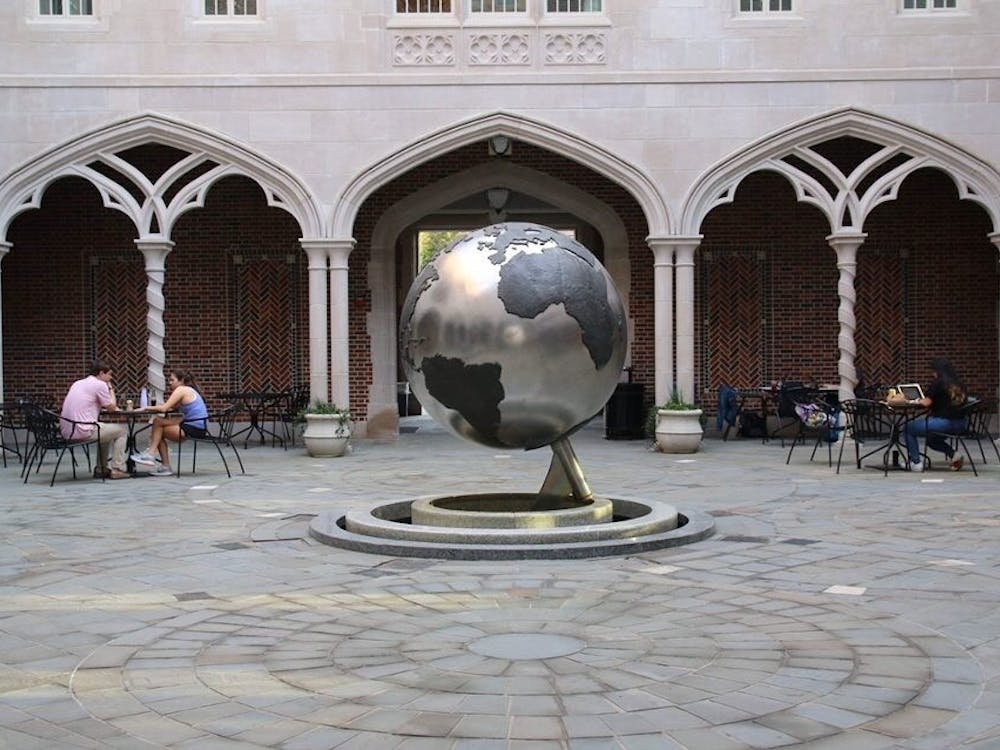Richmond College '09
This past spring, I went to China, India, and South Africa on a public health program with 32 other college students. While I learned a great deal about the countries I was in, I probably learned more about my own culture and myself. In many ways, I was reassured in my cultural traditions -- such as in my faith and in the strengths of my community. And yet, I also developed some severe misgivings. Namely, I cringe at how, we, the privileged, interpret our "care" for the poor.
These thoughts began to materialize in my interactions with other participants of in the program. After a while, I picked up on how many of us reassured ourselves by saying how "awesome" everyone in our program was. Imagine a bunch of liberal hippies united in their hatred for President Bush and also in the unnoticed glorification of themselves because of how "awesome" they were in comparison. Everyone was well-intentioned and intelligent, but those qualifications are never enough to effect positive and real change. So I must ask, what does it take to actually do legitimate good for others?
We must realize that our efforts to help others will be misguided and disingenuous if our true end is to elevate ourselves. As we all realized in the program, when a problem occurs, we often label the culprit, victim, and how we can be the heroes that are better or superior. Sounds a lot like what the bad person is supposed to do, right? Although, it is worse, because everyone knows the bad person is bad, but we are telling ourselves that we are good, and convincing everyone else the same.
For instance, it is currently popular to be eco-friendly or for corporations to donate bed nets to malaria-ridden countries in Africa. Didn't we see the numerous commercials during the Olympics about how these multinational corporations such as Exxon-Mobil and General Electric are saving the world every oil drum or airplane engine at a time? Each commercial makes very clear the profound efforts these companies exert, and how incredibly awesome they are for doing them.
If we become introspective, it is very easy to notice the same disturbing trends in our individual lives. Everything we do has to have a preconceived use, including serving others. In the article "The Organization Man," David Brooks wrote that our generation is more organized and structured than any ever in human existence. Such subservience to our time schedules means that other things go, like the incentive for quality human relationships. Why struggle through the difficulty of interacting with an inconsistent and moody human when you can get all your information from Google? Sure, efficiency is important, but we must be careful not to lose essential foundations, like faith in ourselves, others, and God.
Without things like real relationships, we move towards constructing lives devoid of uncertainty. We are never able to be surprised, or to do spur of the moment things. In other words, we set ourselves dependent on a path, become secure because we identify ourselves by it, and thus create no incentive to doubt anything different.
How then are the rich to help the poor? By relationships. Real ones. Don't just interact with poor people because you are tutoring them or wishing to add a cool experience of leadership to your resume. Be in community with others and love them, and you will realize they have just as much, if not more to offer. Then, you might realize that you are poor, too.
Enjoy what you're reading?
Signup for our newsletter
Support independent student media
You can make a tax-deductible donation by clicking the button below, which takes you to our secure PayPal account. The page is set up to receive contributions in whatever amount you designate. We look forward to using the money we raise to further our mission of providing honest and accurate information to students, faculty, staff, alumni and others in the general public.
Donate Now


